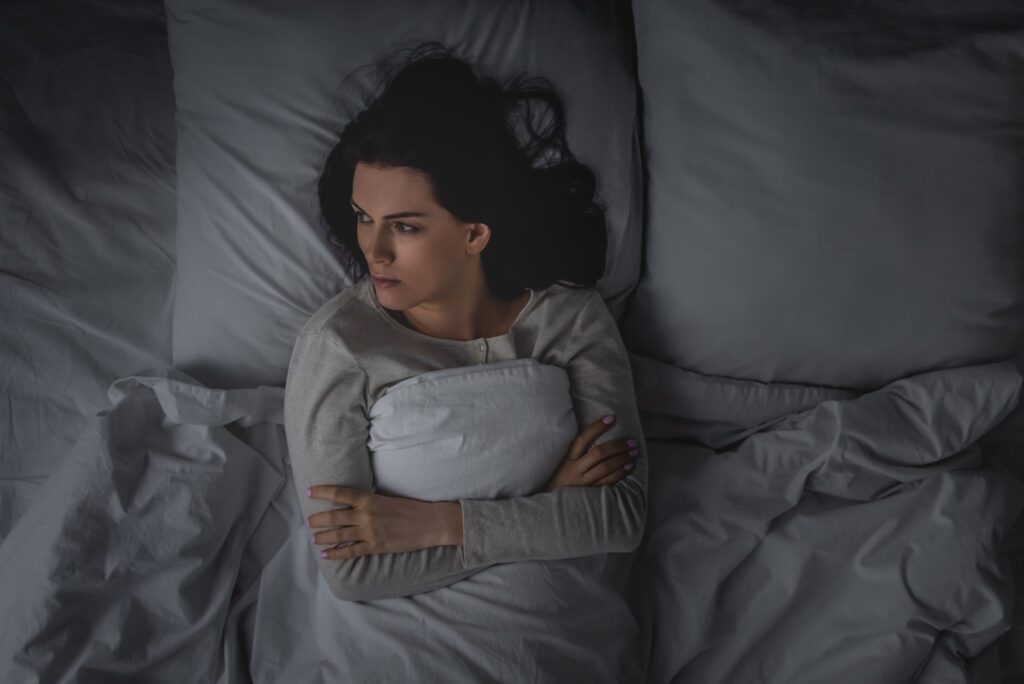Anxiety and sleep
If you’ve been feeling anxious, chances are your sleep is also suffering. Find out how anxiety impacts sleep and what you can do.

Anxiety and anxiety disorders
Anxiety is your body’s natural response to stress, which includes fear or apprehension. However, if feelings of anxiety are extreme, are with you all the time, last more than six months or interfere with your quality of life, then it may be classified as an anxiety disorder.
Anxiety disorders are very common with around 26% of Australians experiencing an anxiety condition in their lifetime.[i] As a result of the worldwide coronavirus pandemic and subsequent lockdowns across the country, levels of anxiety have increased considerably, affecting people of all ages.
What’s the connection between anxiety and sleep?
The relationship between anxiety and sleep is complex. People with anxiety disorders are more likely to experience serious sleep disorders such as insomnia. They are also more likely to experience problems sleeping during times of stress.
Anxiety can make it difficult to fall asleep or to follow healthy sleep schedules and routines. Having difficulty falling asleep can also end up being a source of anxiety, with people often lying awake worrying about not being able to get to sleep.
Even if you are able to fall asleep, you might still wake up in the middle of the night feeling anxious, or for seemingly no reason at all, and then find it difficult to get back to sleep. It’s also very common for people with anxiety to experience bad dreams and nightmares. All these interruptions reduce both quality and quantity of sleep.
What should you do?
While anxiety disorders can significantly impact your life, they are one of the most treatable mental health disorders. The most important thing is to speak to your doctor about your anxiety. They will be able to provide the right treatment for you (which may include medication) and refer you to a qualified therapist who can help you overcome your anxiety symptoms, and help you feel better.
Tips to reduce anxiety for a better night’s sleep
All of us feel anxious from time to time. Whether you have an anxiety disorder or are worrying about a particular situation, the following tips may help.
- Listen to relaxing music — Research shows that listening to classical music for 30 minutes has a significant calming effect.
- Take a bath — Water can be particularly calming so try a bath before bed rather than a shower.
- Use aromatherapy — There are certain scents that have been shown to promote relaxation and help you sleep. One of the most commonly known is lavender. Other scents that can help include vanilla, bergamot, geranium and sandalwood.
- Exercise during the day — Regular exercise can help reduce stress and help prepare your body for sleep
- Breathe— Deep breathing exercises can calm your mind and reduce your heart rate.
- Drink tea — Herbal tea is perfect to help you unwind from your day. Camomile tea in particular is great for anxiety.
Relax in comfort
A high-quality, supportive and comfortable mattress will also do wonders to help you sleep better. At BedGuard we have a range of mattresses to suit everyone, so come in-store or browse online today, to ensure you’re relaxed and comfortable for a good night’s sleep.
[i] Beyond Blue, https://www.beyondblue.org.au/media/statistics





